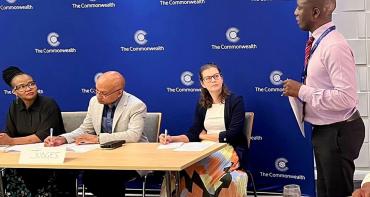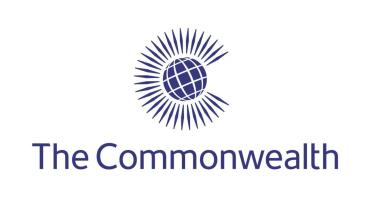Interim Statement

The Commonwealth was invited by the Independent National Electoral Commission (INEC) of Nigeria to observe the 2011 elections. Following an assessment mission from the Commonwealth Secretariat, the Commonwealth Secretary-General accepted the invitation and constituted an Observer Group of thirteen persons, supported by a team from the Secretariat. I was privileged to lead this distinguished Group, which has been in Nigeria since 26 March 2011; we extended our stay after the National Assembly and Presidential elections were both postponed by a week.
At the start of our mission and subsequently, we met with the Chairman and senior officials of INEC, some presidential candidates, other representatives of political parties, civil society, the media, Commonwealth High Commissioners, as well as other international and domestic observers. Through these consultations, we have made an effort to develop a proper understanding of the political scene in Nigeria and the issues that preoccupy the stakeholders.
Commonwealth teams were based in eight locations around the country, both for the National Assembly elections on 9 April and the Presidential elections on 16 April (after having also been deployed for the postponed National Assembly elections on 2 April). Our teams met with Resident Electoral Commissioners and other INEC officials, domestic and international observers and other stakeholders at the State and local levels, in order to assess the situation in their respective areas of coverage. On the two election days and thereafter, they observed the accreditation, voting, counting and collation of results.
Everywhere we went, we were warmly welcomed by Nigerians from all walks of life.
This is an interim statement, meant to provide an initial summary assessment of the electoral process as we observed it. We will shortly submit a Final Report to the Commonwealth Secretary-General, setting out our findings on the entire process and our recommendations in greater detail.
Electoral Framework and Management of the Process
We believe that Nigeria’s 2010 Electoral Act, as well as the 1999 Constitution (as amended) provided the necessary conditions for INEC to function as an independent and impartial election management body. INEC was also provided with sufficient resources for a protracted and expensive electoral process.
Timelines for the conduct of a poll must provide enough time for all stages to be adequately completed so as not to impact negatively on other aspects of the process, notably in confirming candidate nominations in good time for the poll, ballot printing and distribution of materials. Further, all printing of ballots and other sensitive materials should be conducted with safeguards, so as to avoid the unfortunate delays that affected the 2 April postponed polls.
It is desirable for late changes to the Electoral Act to be avoided. Amending an Act so close to the conduct of the elections creates uncertainty and a lack of clarity and awareness among stakeholders as to the procedures and institutional responsibilities.
The creation of a new biometric Voter Register within a short space of time was a major achievement and a significant factor in the credibility of the 2011 elections. However, the time available for registration was too short. The register needs to be rectified to include all eligible voters and thereafter to be properly maintained, with continuous checks to address anomalies. We welcome INEC’s intention to do so.
We believe that removing the current prohibition on independent candidates would increase participation rights and might also help to alleviate some of the tensions which currently bedevil political party primaries.
We were deeply disappointed to see the low percentage of women candidates in the elections. We strongly urge political parties to mainstream gender policies and significantly increase the number of women in positions of leadership and decision-making, as well as to ensure a level playing field for female aspirants to political office.
Participation rights would also be more fully provided for if the minimum age requirements for National and State Assembly candidates were appropriately reduced.
There needs to be an arrangement for persons performing election duty on polling day to be able to exercise their right to vote; we believe that over a million people may have been disenfranchised for want of such a mechanism.
The Campaign
We were encouraged by the vigorous campaigns undertaken by political parties and candidates and even more so by the fact that they focused on manifestos and policies, rather than on personalities, particularly at the level of the presidential elections.
We welcome the generally peaceful nature of the campaign and the electoral process. At the same time, we were saddened by the instances of violence that took place during the campaign as well as subsequently. We have already condemned the cowardly attacks on innocent persons in Suleja and Maiduguri that claimed several lives and maimed many others. Such violence has no place in a democracy.
The Code of Conduct for Political Parties is a valuable feature that needs to be consolidated and implemented in letter and spirit. The Inter-Party Advisory Committee should become a standing mechanism for resolving differences and promoting consensus among political stakeholders.
Voting, Counting and Results
The experience of 2 April should not have happened. While INEC managed to hold a reasonable election on 9 April and improved its performance further on 16 April, it clearly needs to improve on its organisational capacity.
The special process of accreditation of voters devised by INEC was a response to the malpractices of the past, in particular the phenomenon of multiple voting. However, in the event some aspects of the procedures were abandoned because they were impractical.
There remain shortcomings with the voter registration, based on the number of people with voter cards but missing from the voter register. This needs to be urgently addressed.
There needs to be stricter safeguards against underage voting, a phenomenon witnessed in parts of the country.
Some of the polling units we visited were poorly located and badly laid out, creating unnecessary problems for INEC staff and security personnel. There was no protection from the elements in most cases. Some polling units were also ill-equipped in terms of basic furniture and lighting.
The secrecy of the ballot needs better protection. Many did not seem to mind voting under the gaze of others – and some did not bother to fold their ballots for fear of spoiling them. However, their right to a secret ballot is sacrosanct and cannot be taken for granted.
We commend the inclusiveness and transparency of the counting and collation process wherever our teams were present.
Overall, training provided to polling officials must be improved to ensure greater consistency in the application of procedures and increased awareness among staff of the correct modalities for each stage of the process.
The Media
We were impressed by Nigeria’s vigorous media and by the coverage it provided to the electoral process. We noted the predominant exposure given in the media to the ruling party and its presidential candidate, which is to some extent a reflection of the resources at the party’s command.
The National Broadcasting Commission should ensure that the state media accords equitable coverage to all stakeholders, particularly during the campaign period.
Some of the private media must also transcend narrow partisan considerations and report more objectively and in the larger interest of the nation.
Overall Impressions
The April 2011 elections marked a genuine celebration of democracy in Africa’s most populous country and a key member of the Commonwealth. Previously held notions that Nigeria can only hold flawed elections are now being discarded and this country can now shake off that stigma and redeem its image. Notwithstanding the organisational deficiencies that resulted in the 2 April National Assembly elections being aborted after they had started, and in spite of persistent procedural inconsistencies and technical shortcomings, the elections for the National Assembly and the Presidency were both credible and creditable and reflected the will of the Nigerian people.
The success of the electoral process must be attributed in large measure to the respect and confidence enjoyed by INEC, and in particular by its Chairman, Professor Attahiru Jega. In him, the nation was able to look up to a person of deep integrity, transparency and commitment, who was determined to make every Nigerian’s vote count. His willingness to accept full responsibility for the fiasco of 2 April, and his readiness to postpone the National Assembly elections a second time in response to requests by the stakeholders, helped Nigerians keep faith in INEC, which eventually did not let them down.
We commend the contribution made by the National Youth Service Corps, whose members worked as ad hoc INEC staff for the elections. These young Nigerians, a large number of whom were women, showed dedication and courage in helping to deliver a transparent electoral process, often in difficult conditions. They are a source of pride and hope for Nigeria.
Our appreciation goes also to the Nigerian security forces, drawn from various services, whose strenuous and coordinated efforts ensured that the elections were largely held in an atmosphere of peace and order.
But credit for the success of the electoral process must go, most of all, to the people of Nigeria themselves. Right from when we arrived in this country we were struck by the popular mood of determination to realise genuine democracy. We noted the deep-seated public frustration at the history of deficient elections and the desire to make a new beginning. Across the length and breadth of the country, the people of Nigeria demonstrated exemplary dignity, responsibility and forbearance, waiting the entire day peacefully and patiently under the hot sun, or in heavy rain, to exercise their franchise. We salute them and wish them well as the custodians of their hard-earned democracy.
Abuja, 18 April 2011



